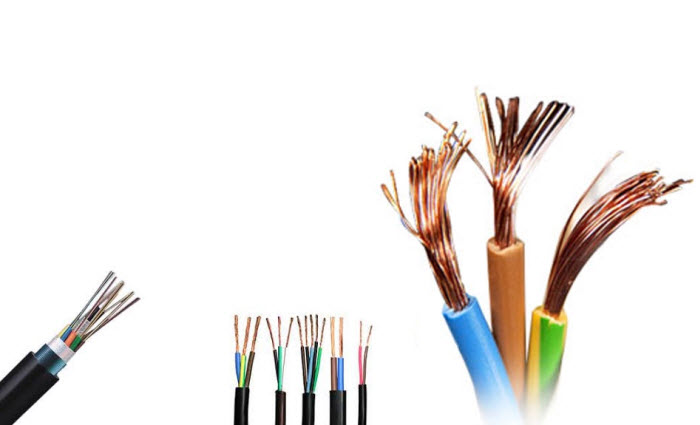In today’s digital age, streaming services have undeniably disrupted the entertainment landscape. However, cable TV remains a relevant and popular choice for many, offering a wide variety of channels, live sports, and local programming. But with so many cable companies vying for your attention, it can be challenging to determine which cable company is the best for your individual needs and preferences.
This comprehensive guide will delve into the factors you should consider when choosing a cable provider, compare some of the leading cable companies in the United States, and help you make an informed decision.
Factors to Consider When Choosing a Cable Company

Before deciding which cable company is the best for you, it’s crucial to evaluate your priorities and needs. Consider the following factors:
-
Channel Lineup: What channels are essential to you? Do you prioritize sports, news, entertainment, or a mix of everything? Different cable companies offer different channel packages, so compare the lineups to ensure you get the channels you want.
-
Pricing and Packages: Cable TV packages can range significantly in price. Determine your budget and compare the costs of different packages, paying attention to promotional offers, introductory rates, and potential price increases after the promotional period.
-
DVR and On-Demand Content: Do you need a DVR to record your favorite shows or access on-demand content? Consider the DVR storage capacity, features, and the availability of on-demand titles.
-
Bundling Options: Many cable companies offer bundled packages that combine TV service with internet and phone service. Bundling can often lead to cost savings and simplify your bills.
-
Customer Service: Reliable customer service is crucial when dealing with any service provider. Research the cable company’s reputation for customer service, including response times, helpfulness, and ease of contacting support.
-
Contract Terms: Some cable companies require contracts with early termination fees. If you prefer flexibility, look for providers with no-contract options.
-
Availability: Not all cable companies are available in all areas. Check the availability in your location before making a decision.
Comparing Leading Cable Companies
Now that you understand the key factors to consider, let’s compare some of the leading cable companies in the United States:
-
Xfinity: Xfinity is the largest cable provider in the U.S., offering a wide range of channels, packages, and bundling options. They are known for their extensive on-demand library and advanced DVR features. However, their pricing can be on the higher side, and contracts may be required.
-
Spectrum: Spectrum is another major cable provider with a strong reputation for customer satisfaction. They offer a variety of packages with no contracts, and their pricing is generally competitive. However, their channel lineup may not be as extensive as Xfinity’s.
-
Cox: Cox is a regional cable provider with a strong presence in the southern and western United States. They offer a good selection of channels and competitive pricing, but their availability is limited to specific areas.
-
Optimum: Optimum is another regional provider, primarily serving the Northeast. They offer a variety of packages with flexible contract options and a focus on affordability. However, their customer service has received mixed reviews.
-
Verizon Fios: While not technically cable, Verizon Fios uses fiber optic technology to deliver TV service with excellent picture quality and reliability. Fios offers a variety of packages with competitive pricing, but its availability is limited to areas with Fios fiber optic infrastructure.
-
Dish Network: Dish Network is a satellite TV provider that offers a wide range of channels and packages, including options for international programming. While Dish can be a good choice for rural areas where cable internet is not available, it can be affected by weather conditions.
Which Cable Company is the Best? It Depends on Your Needs
Ultimately, the best cable company for you depends on your individual needs and priorities. There is no one-size-fits-all answer. If you prioritize channel selection and advanced features, Xfinity might be a good choice. If you prefer no contracts and competitive pricing, Spectrum could be a better fit. If you value customer service and fiber optic reliability, Verizon Fios might be the ideal option.
Tips for Choosing the Best Cable Company
-
Research and compare: Don’t settle for the first cable company you come across. Take the time to research different providers, compare their packages and pricing, and read customer reviews.
-
Check for promotions: Cable companies frequently offer promotions and discounts. Be sure to inquire about any current deals that could save you money.
-
Negotiate: Don’t be afraid to negotiate with the cable company. They may be willing to offer a better price or throw in extras to secure your business.
-
Consider bundling: Bundling your cable TV service with internet and phone can often lead to significant cost savings.
-
Read the fine print: Pay close attention to the contract terms, including early termination fees, potential price increases, and any hidden fees.
Alternatives to Cable TV
If you’re not convinced that cable TV is the right choice for you, consider these alternatives:
-
Streaming services: Streaming services like Netflix, Hulu, and Amazon Prime Video offer a vast library of on-demand movies and TV shows, often at a lower cost than cable.
-
Live TV streaming services: Services like YouTube TV, Hulu + Live TV, and Sling TV offer a selection of live TV channels, including sports and news, delivered over the internet.
-
Over-the-air (OTA) antenna: An OTA antenna allows you to access free local channels, including major networks like ABC, CBS, NBC, and Fox.
Conclusion
Choosing which cable company is the best can be a daunting task, but by carefully considering your needs, researching different providers, and comparing their offerings, you can find the perfect cable TV solution for your household. Remember to prioritize the factors that matter most to you, whether it’s channel selection, pricing, customer service, or contract flexibility. And don’t forget to explore alternative options like streaming services and OTA antennas if cable TV doesn’t meet your needs.